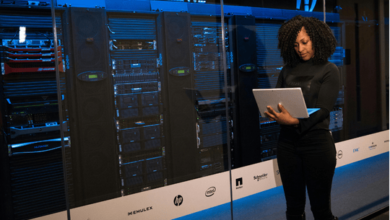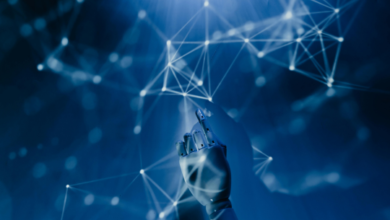From Science to Solution The Role of Syntaraai in Tomorrow’s World
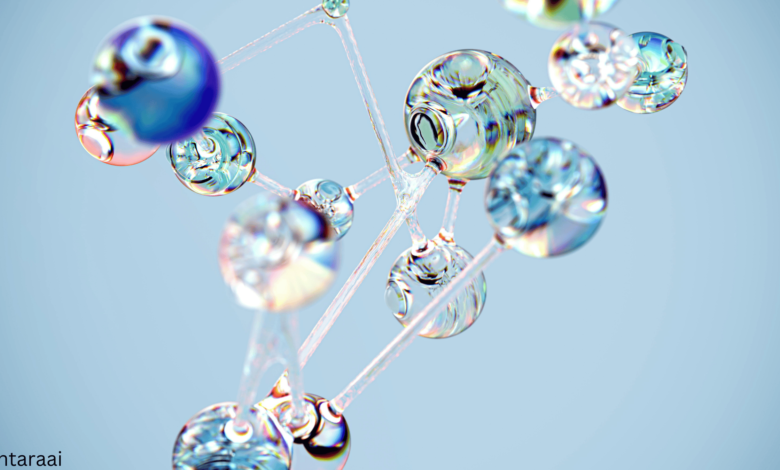
Syntaraai is a term that is gaining a lot of interest in different circles is usually used in connection. The latest technology health and in the context of innovation. While it could appear to be something that is difficult to comprehend at first but getting to know Syntaraai isn’t as complicated as it might seem. This article we’ll examine what Syntaraai is what it does and how it will influence various industries. In the field of healthcare and artificial intelligence (AI). This guide will give you a an extensive description of Syntaraai in a simple understandable language.
Table of contents
- What is Syntaraai?
- The Role of Syntaraai in Healthcare
- Syntaraai in Agriculture: Revolutionizing Food Production
- Syntaraai and Artificial Intelligence: A Perfect Synergy
- Syntaraai in Environmental Sustainabil ity
- Syntaraai in the Creation of Smart Cities
- Challenges and Ethical Considerations
- The Future of Syntaraai: What’s Next?
- The Power of AI in Syntaraa i
- Syntaraai’s Environmental Impact
- The Ethics of Syntaraai Technology
- The Future of Syntaraai in Innova tion
- Syntaraai A New Era of Technological
- Overcoming Challenges in Syntaraai Developmen t
- Conclusion
What is Syntaraai?
Syntaraai is a multi-disciplinary idea that brings together different fields of research and technology to address particular challenges or needs. It’s a blend with synthetic biology AI as well as innovative designs that together provide solutions to various issues. Although the term is new its possibilities are numerous.
Syntaraai is broken down into three primary areas:
- Synthetic Biology It involves the creation of new organisms or altering existing ones to fulfill specific tasks. Scientists can develop organisms that are able to address agriculture health and environmental issues.
- Artificial Intelligence (AI): AI is the term used to describe. The creation of machines capable of performing tasks that normally require human expertise. This is a term used to describe problem-solving decision-making and learning from experiences.
- Innovation in Design: This area is focused on creating devices or solutions that are efficient and environmentally sustainable. It’s about considering the ways that design and technology can collaborate to develop strategies.
The Role of Syntaraai in Healthcare
One of the areas where Syntaraai has made an impact is the field of healthcare. Syntaraai is combining synthetic biology with AI researchers are creating new drugs treatments or diagnostic devices that were thought to be unattainable.
For instance synthetic biology permits the development of custom microorganisms which can treat specific ailments within the body. The microorganisms are designed for the purpose of delivering drugs directly to cancerous cells thus reducing. The negative side effects usually caused by traditional treatments such as chemotherapy. AI is on the other on the other hand plays an essential function in analyzing huge quantities of data to identify pattern. The patterns and to predict progress of illnesses eventually improving the outcomes of patients.
Additionally AI can assist in tailoring treatments by studying genetic data. In analyzing the genetics of the patient health professionals can develop treatment. The plans that are individualized which are more effective and carry fewer risks.
Syntaraai in Agriculture: Revolutionizing Food Production
Syntaraai is also changing the way we think about agriculture through making. The production of food that is more efficient and sustainable. As the population of the world grows and increase there is a growing demand for food products that could be grown in a manner. That is efficient and ecologically sustainable. Synthetic biology has resulted in the creation of genetically modified foods which are resistant to droughts pests and diseases. These crops can drastically reduce the use of dangerous fertilizers and pesticides.
AI in agriculture can be transformative. AI-powered systems can track the health of crops predict weather patterns and optimize irrigation systems. This results in greater efficiency in the use of resources less loss and greater yields on crops. Through combining the two areas Syntaraai helps farmers produce more food from less resources and addressing. The issue of feeding the growing global population.
Syntaraai and Artificial Intelligence: A Perfect Synergy
Synthetic biological processes and AI is the genesis of Syntaraai. Together they’re enabling the dawn of a new age of technological advancement and innovation. AI’s capability to analyze and process data at the highest level. It is a crucial instrument in fields such as synthetic biology. AI can simulate biology and determine how changes could affect organisms and ecosystems. This speeds the process of discovering and development.
For instance AI can help design artificial organisms by imagining how they behave in various conditions. This eliminates the requirement to make a trial-and-error decision within the lab which saves time and money. In addition AI can optimize the process of designing by finding certain patterns within biological samples that are difficult for human beings to recognize.
Syntaraai in Environmental Sustainability
In terms of sustainability for the environment Syntaraai holds the potential to transform industries. It depend extensively on the natural resource. Synthetic biology could be utilized to create organisms that can help remove polluting substances such as bacteria that break down plastic waste and oil spills. Bioremediation methods are eco green and provide an alternative that is sustainable to traditional cleaning techniques.
Additionally Syntaraai can contribute to the reduction of carbon emissions through the development of new biofuels. Biofuels can be created using renewable resources and leave less environmental impact when compared the fossil-fuel alternatives. AI can improve the processes used to produce biofuels which makes them more cost-effective and efficient.
Syntaraai in the Creation of Smart Cities
The idea of smart cities is based on the use of technology to enhance your quality of life of people living in urban areas. While making them more environmentally sustainable. Syntaraai plays an essential role in the creation of smart cities using artificial intelligence synthetic biology. The ingenuous designs to come up with solutions that address urban issues.
For instance AI can be used to regulate the flow of traffic cut down on the use of energy and improve. The waste disposal systems. Synthetic biology is a way to develop eco-friendly materials for infrastructure and construction including self-healing concrete which decreases the need for maintenance. These innovations when combined will make cities more efficient more sustainable eco-friendly and efficient.
Challenges and Ethical Considerations
Although the potential of Syntaraai is immense but there are many issues and ethical concerns that must be considered. Synthetic biology’s use to alter the organisms of living things raises concerns regarding. The safety of the process because the long-term consequences of these changes aren’t always clear. Also there is the issue of how to control and regulate AI’s use AI in areas that are sensitive such as agriculture and health care in order to ensure. It will benefit the society in general.
Concerns about ethics also arise when discussing the possibility of misuse of Syntaraai technology. For example the capacity to design and create living organisms or AI systems that alter human biology may have unexpected results. It is vital for scientists as well as policymakers and business leaders to come together to develop rules and guidelines to ensure. That Syntaraai technologies are created and applied in a manner that is responsible.
The Future of Syntaraai: What’s Next?
In the meantime as Syntaraai continues to grow its impact on a variety of industries is predicted to increase. The potential for innovations in the fields of agriculture healthcare and sustainability for the environment is enormous. In the near future we could see major improvements in personalized medicine improved production of food and development of sustainable technology that tackle some of the most pressing issues.
But in order for Syntaraai to fully realize its potential it requires collaboration between engineers scientists as well as the policy makers. Synthetic biology AI innovating design continues to expand the boundaries of what is feasible. It is crucial in ensuring that such innovations are utilized to serve the greater good.
The Power of AI in Syntaraai
AI is the foundation of a variety of Syntaraai innovation. By processing massive amounts of data and finding complicated pattern patterns AI allows you to develop and improve synthetic organisms. For instance AI can simulate how organisms that have been genetically altered respond to different environments which reduces the necessity for expensive trial-and-error tests.
AI is also playing a major part in monitoring the performance of artificial creatures in real-time. This allows researchers to refine their designs swiftly and effectively which allows them to develop efficient solutions. In addition AI-powered data analytics could improve decision-making in areas like agriculture healthcare and sustainability of the environment.
- AI process large amounts of data in order to detect patterns which makes it simpler to create and optimize artificial organisms.
- AI models the way genetically modified organisms behave under different environments. Thus reducing the need for experiments based on trial and error.
- AI evaluates the performance of artificial organisms in real time allowing researchers to refine designs quickly.
- AI helps in making better decisions by supplying information-driven insight in areas like agriculture health and sustainability.
- AI assists in the development of efficient solutions by continually studying data and making in-real-time adjustments.
- AI-powered analytics can help in the identification of issues that could be causing problems increasing the efficiency of artificial organisms.
Syntaraai’s Environmental Impact
In terms of sustainability for the environment Syntaraai holds the potential to transform industries that rely extensively on the natural resource. Synthetic biology is a way to create organisms. It can help remove pollution like bacteria that remove oil spills and plastic waste. Bioremediation methods are eco safe and provide alternatives that are sustainable to conventional cleaning methods.
Additionally Syntaraai can contribute to the reduction of carbon emissions through the development of new biofuels. Biofuels can be created using renewable resources and leave lower environmental footprints in comparison the fossil-fuel alternatives. AI can help optimize the processes used to produce biofuels which makes them more cost-effective and efficient.
The Ethics of Syntaraai Technology
Although Syntaraai has incredible potential but it also poses ethical concerns that need to be taken into consideration. Synthetic biology’s use to alter organisms raises questions regarding the potential for unintended effects. The modification of the genetic makeup of living organisms can lead to unintentional changes to the ecosystem or health hazards.
Similar to the usage of AI in agriculture and healthcare requires careful oversight to ensure. It is beneficial for society without going over ethical boundaries. There are a number of concerns about data privacy biases within AI algorithms as well as the possible misuse of genetic data.
To tackle these issues to address these concerns. It is crucial for policymakers scientists and developers of technology to develop clear guidelines on ethics and regulatory frameworks. That guarantee Syntaraai technologies are utilized responsibly and without risk.
The Future of Syntaraai in Innovation
The Syntaraai’s future looks positive with endless possibilities for the development of new technologies. As technology advances it is possible to see advances in the fields of agriculture healthcare and sustainability. AI’s role is set to increase as it advances the creation and improvement in synthetic biology.
In the field of healthcare we could observe the creation of personalized targeted treatments. They are much more effective than the existing treatments. In the agricultural sector synthetic organisms may be able to tackle pressing issues like water depletion and soil loss. The field of environmental sustainability innovative technologies can help reduce. The impacts of climate change and contribute to a healthier planet.
Syntaraai A New Era of Technological
Syntaraai is a new era in collaboration among synthetic biology AI and ingenuous design. These disciplines previously thought of as separate disciplines and are now collaborating to develop solutions that tackle some of the most pressing issues. Syntaraai’s potential applications Syntaraai cover a broad range of industries ranging from agricultural and health to sustainability. The environment as well as urban development.
This technology convergence encourages interdisciplinarity. Engineers scientists and designers need to collaborate for Syntaraai to be sure technology are designed in a sustainable and sustainable way.
Overcoming Challenges in Syntaraai Development
Despite its promise however the advancement of Syntaraai is not without obstacles. One of the biggest issues is the complexity of combing synthesized biology AI technology as well as designing to create a system that is practical and effective. Researchers must tackle technical issues in fields such as machine learning genetic modification. The material science in order for Syntaraai’s solutions to come to fruition.
Additionally the speed of technological development means regulations must be constantly updated to keep pace with the latest innovations. The balance between innovation and regulation is crucial for the successful implementation of Syntaraai technology.
Conclusion
In a nutshell Syntaraai is a revolutionary idea that blends Artificial Intelligence synthetic Biology. The innovative design to solve issues across a variety of industries. From agriculture to healthcare and sustainability for the environment The applications of Syntaraai are extensive and exciting. But like any technological advancement. It is important to approach its creation and use with care and ensure that ethical considerations are taken into account and that safety procedures have been put in place.
When we think about the future Syntaraai offers the potential to change our lives and work as well as our interactions to the environment around us. If we can find the right balance between responsible and innovative thinking. We can tap into the potential of Syntaraai to build a better longer-lasting sustainable future for everyone.

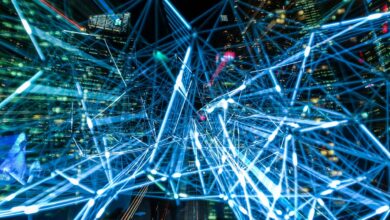
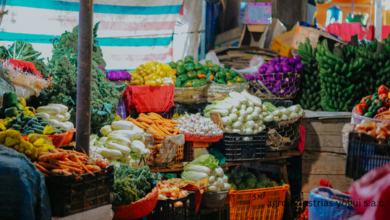
![parsec-fbf[31515]](https://businesswebber.com/wp-content/uploads/2024/12/pexels-thisisengineering-3861958-390x220.jpg)
